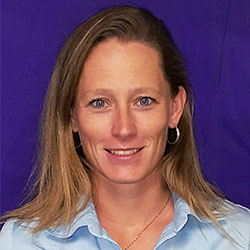
Article reposted from The Inquirer Daily News
Author: Brian Cammarota
In honor of National Athletic Trainers’ Month this March, I wanted to spotlight a local athletic trainer and share some insight into the profession.

I had the opportunity to speak with Nicole Cattano, PhD, LAT, ATC, of Cochranville, Pa., about her position as an athletic trainer at West Chester University.
How long have you been a certified athletic trainer (AT)?
I have been an athletic trainer for 15 years.
What type of education do you need to be an athletic trainer?
You need to have a minimum of a Bachelor’s degree from an accredited program. However, the minimum requirement will soon change to a Master’s. Over 75 percent of current ATs have a Master’s degree or higher.
What do you do in current position?
I am currently an Assistant Professor / Athletic Trainer at West Chester University. I have been a faculty member here for the past 12 years and I teach in the undergraduate and graduate programs in addition to serving as the AT for the Men’s and Women’s Basketball Teams.
Do you have an area that you specialize in?
My area of specialization is post-traumatic osteoarthritis after knee injury. I am very passionate about trying to educate people about this long-term risk and in trying to find ways to prevent this debilitating condition. I am happy to say that we have integrated injury prevention programs with our teams as a primary and secondary measure to try to help with this. These programs can help reduce injuries by as much as 50 percent.
What is your general work week like?
In-season and out-of-season are very different. Generally speaking, in-season work weeks are anywhere between 40-60 hours depending on the number of practices and games happening. However, this does not include all the phone calls, emails, and text messages that I receive in my time not at work.
A typical day consists of teaching, meetings, office hours, helping students that pop in, and lots of emails! I also help mentor graduate students through their research projects. I serve on various committees and in other service positions.
The afternoons are typically dedicated to the basketball teams and conducting treatment and rehabilitations for these athletes. I enjoy this time when I get to step away from the multitude of tasks and focus on being an athletic trainer.
I also supervise teo graduate students and four undergraduate students each semester. Interacting with them and helping them develop is a very rewarding experience to me personally.
Are you involved in any organizations as an AT?
I recently became Southeast regional representative with the Pennsylvania Athletic Trainers’ Society (PATS). I write regularly for a Sports Medicine Research blog site. There are regular postings on a variety of topics that attempt to bridge the gap between research articles and the implications for clinical practice. I am also involved in the Athletic Trainer’s Osteoarthritis Consortium (ATOAC) and the Osteoarthritis Action Alliance (OAAA) which stem from my research and expertise in post-traumatic osteoarthritis.
Was there anyone that influenced you to become an athletic trainer?
I never met an athletic trainer until I was a senior in high school – and at the time it seemed interesting, but I had no idea about the profession. When I arrived at college, I wasn’t completely sure what I wanted to major in – but as an athlete, I really gained an appreciation for ATs. My interactions with the ATs and professors at the University of North Carolina at Greensboro really helped me realize that becoming an AT was what I wanted.
What do you enjoy most about being an athletic trainer?
Evidence based practice. Being able to identify a problem and utilize my clinical expertise, research, and taking into account patient values is a fun and rewarding way to help physically active people get back to what they love.
What do you enjoy most about teaching?
The time and rapport that you establish with students over the course of their four years in the classroom and clinical setting. I really enjoy seeing the exact moment on a student’s face when something “clicks.” I love the West Chester Pride that alumni have, and I truly look forward to hearing from alums about all the fantastic things that they are doing.
Is there any advice you would share with someone who is thinking about becoming an athletic trainer?
Love what you do, and become as involved as you can. The athletic training community is tight-knit and the profession can be very rewarding. There will always be people who don’t know or may not fully understand/appreciate what you do. Don’t get frustrated – see it as an opportunity to educate and make a difference.